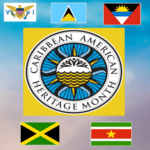Hanukkah, or the Festival of Lights. This is an eight-day celebration that commemorates the re-dedication of the Second Temple in Jerusalem. The celebration centers around the lighting of the eight candles on the Menorah while reciting traditional blessings. Children will play with a dreidel, a four-sided top bearing four Hebrew letters.
For Christians, Christmas is a celebration of the birth of Christ. Traditions for Christmas vary around the world. Americans decorate a tree and give gifts. Australians often go camping and may decorate a Christmas bush. The Icelandic people celebrate 26 days of Christmas and have 13 Santa Clauses that deliver gifts to shoes placed on windowsills.
Not all holiday celebrations date back centuries. For instance, Bodhi Day, a Hindu holiday, was created in 1985 by Sivaya Subramuniyaswami. Likewise, the secular Kwanzaa was developed in 1966 by Maulana Karenga. Both holidays were developed to provide an alternative to the mainstream holidays of Christmas and Hanukkah and encourage celebration of the Hindu or African American history and peoples.
Humanity, in general, is not good at accepting other’s faiths. Each religion has a history that is full of examples of faith and As the Andy Williams song goes, “Whoop de do.” The meaning(s) behind this Holiday Season can be different for everyone. It may be tied to beliefs or faith, or it may have a totally different meaning. It is not for me or anyone else to tell others that their reason for the season is incorrect. It is important that we respect others, and in doing so, examine how others in our lives feel about the holidays. While someone’s rituals may vary from yours, they are no less significant, and belying their beliefs fuels intolerance.
Let us study several popular December holiday celebrations:
Our current calendar lists December as the month that holds the Winter Solstice, December 21. For those in the Northern Hemisphere, it is the longest night of the year. For those in the Southern Hemisphere, it is the longest day of the year. Northern Hemisphere Pagan culture and religions continue to celebrate the Winter Solstice, and rituals such as the Yule log, evergreen wreaths, and exchanging of gifts, all commonly featured in Christian Christmas celebrations, originated in Pagan culture. Many scholars link the modern Santa Claus to the Pagan god, Odin.
The Japanese celebrate Ōmisoka, or New Year’s Eve. This is the second most important day in the year. Families will gather to eat a bowl of toshikoshi-soba or udon noodles. These long noodles are symbolic of crossing from one year to the next. Families will cook enough food to last for three days into the New Year, as it is considered bad luck to cook in the first three days of the year.
Those of Jewish faith celebrate religious intolerance. Some of the examples were deadly, like the Spanish Inquisition, Crusades, and the civil war in Syria, fueled in part by Islam’s Sunni vs Shia division.
Other examples were less bloody but led to major shifts in religious thought. For Christians, the Protestant Reformation split the Christian world into several branches with different doctrines. For Muslims the Islamic Schism was a difference in opinion about who should lead the Muslim faith after the death of Muhammed. The two sides initially fought over the successor, but eventually resulted in the two faiths, Sunni and Shia. Despite differences in doctrine, the two groups have, until recently, lived together in harmony for centuries. Viewed from the outside, the differences between branches in the same religion, are minimal. Christians are as baffled at the Sunni vs Shia division as Muslims are at the difference between Baptists and Catholics.
As mentioned above, while you may not share your neighbor’s beliefs, you can still respect those beliefs and expect the same courtesy in return. Can you imagine a world where everyone respected each other’s opinions? Wow. That is a dream worth pursuing.

Lee Cottrell
Faculty – School of Information Systems & Technology, DEI Taskforce Co-Chair





